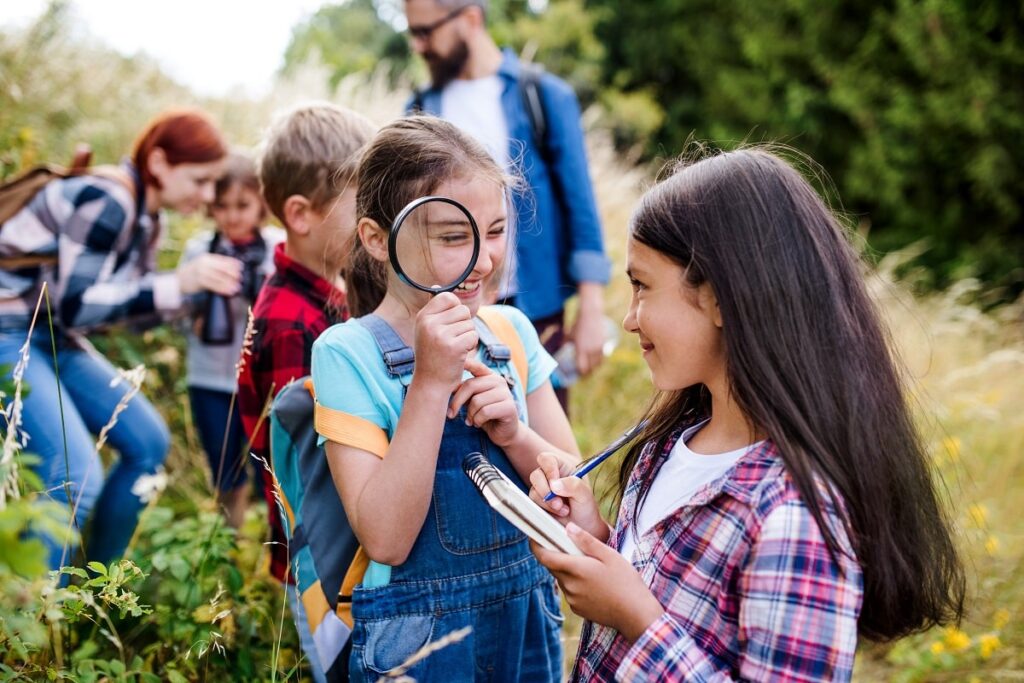Science is not just a subject taught in schools; it’s a way of thinking and exploring the world around us. Introducing children to science from a young age can foster curiosity, critical thinking, and a lifelong love for learning. In this comprehensive guide, we’ll draw insights from various reputable sources to provide you with a well-rounded approach to teaching science to kids.
1. Early Science Exploration:
The first source, “How to Introduce Science to Your Toddler” by UNICEF, emphasizes the importance of starting early. Children are naturally curious, and their brains are like sponges, absorbing information. Encourage this innate curiosity by providing age-appropriate materials like colorful toys, sensory bins, and simple experiments that engage their senses. For example, you can create a rainbow with a glass of water and sunlight, introducing them to the concept of refraction.
2. Hands-On Learning:
The Home Science Tools article, “How to Learn Science,” underscores the significance of hands-on learning. Science is not about memorizing facts but about exploring and experimenting. Use everyday objects to conduct simple experiments at home, like making a volcano with baking soda and vinegar or growing plants from seeds. These activities make science tangible and exciting.
3. Encouraging Questions:
In the NAEYC article, “Supporting Science Learning,” it’s highlighted that encouraging questions is essential. Children are naturally curious and will often ask “why” and “how” questions. Foster their curiosity by providing thoughtful answers or engaging them in discussions. If you don’t know the answer, explore it together. This not only enhances their understanding but also models the importance of inquiry.
4. Storytelling in Science:
Parenting Science suggests using storytelling to teach science. Narratives can make abstract concepts relatable and memorable. Share age-appropriate books, documentaries, or even create your own science stories. For instance, you can read about astronauts exploring space to pique their interest in astronomy.
5. Outdoor Exploration:

Take science outdoors! The world is a vast laboratory waiting to be explored. The Quora thread on teaching kids science acknowledges the value of nature walks, gardening, and exploring parks. Encourage children to observe birds, insects, and plants. You can discuss the different colors, shapes, and behaviors they observe, instilling a deeper appreciation for biology.
6. Everyday Science:
Science is not limited to formal experiments. As the NAEYC article suggests, involve children in everyday scientific activities, such as cooking. Measuring ingredients, observing changes during cooking, and discussing the science behind it all can be incredibly educational and fun.
7. Patience and Encouragement:
Lastly, both the UNICEF and Quora sources emphasize the importance of patience and encouragement. Every child learns at their own pace, and some may show more interest in certain areas of science than others. Be supportive, celebrate their successes, and reassure them that it’s okay to make mistakes in the pursuit of knowledge.
____________________________________________________
Incorporating these comprehensive approaches to introducing science to kids will not only stimulate their curiosity but also lay the foundation for a lifelong passion for learning. Remember that every child is unique, and the key is to make science enjoyable and relatable. By nurturing their inquisitive minds and fostering a love for exploration, you can help them embark on a rewarding journey of scientific discovery.
